The first 10 hires in a startup are much more than just employees—they define the company’s early trajectory. These initial team members set the working style, pace of execution, and, most importantly, influence the culture that shapes future growth.
Hiring effectively—both in the roles you choose to fill and the culture you cultivate—lays the foundation for sustained innovation and success. However, startups face real challenges in this process, from attracting specialised talent amid competition, balancing flexibility with clear responsibilities, to forging a lasting company culture.
This blog explores these issues and offers practical solutions to help founders build strong, purpose-driven early teams.
What Are the Must-Have Roles in Your First 10 Hires?
Though startups vary greatly, certain roles prove critical early on. These usually include product development, engineering, sales, marketing, and operations. The challenge lies in deciding when to hire specialists versus dynamic generalists. Specialists provide deep expertise—such as a senior engineer building your product’s foundation—while generalists adapt to various roles in a fast-evolving environment. Prioritising roles aligned with your immediate goals and growth plans is key.
Key pointers to guide hiring your first 10 roles:
- Hire for impact: Select roles that drive product development and customer acquisition. For instance, SaaS startups often begin with engineers and customer success staff, whereas consumer brands focus early on marketing and sales.
- Balance specialists and generalists: Specialists add depth, generalists add flexibility, which is crucial in lean early-stage teams.
- Enable growth: Bring in roles (like sales managers) that free founders to concentrate on strategy and scaling.
- Cross-functional overlap: Promote role sharing, for example, marketing hires managing social media and onboarding.
- Hire for scalability: Choose people ready to grow along with your startup, taking on larger responsibilities over time.
How to Hire Employees Who Fit Your Startup Culture?
Culture is not a luxury; it’s the invisible glue holding the team and mission together. Early hires shape your startup’s cultural DNA. Hiring for culture fit means assessing qualities such as resilience, collaboration, and willingness to grow. Use interview questions that delve into how candidates have navigated ambiguity, failure, or team conflict. Importantly, culture fit means shared core values, not uniformity—diverse perspectives foster innovation and prevent groupthink. Aim for a culture characterised by respect, curiosity, and openness.
Balancing Role Clarity with Flexibility in Early Hires
In a startup’s early days, employees wear many hats. Clear job descriptions create focus and accountability, but strict role boundaries can hinder the nimbleness startups need. Communicating core responsibilities while encouraging flexibility helps your team meet evolving business demands. For example, a marketing hire might also manage social media and onboarding initially until those functions expand. This role overlap not only maximises impact but also keeps your teams lean and effective. Transparent expectations paired with ongoing learning opportunities cultivate ownership and agility, turning everyday challenges into growth opportunities.
Common Hiring Challenges
Founders face three main challenges: competing for talent, budget constraints, and balancing hiring speed with candidate quality. Established companies lure candidates with big brands and pay, making startups compete on shared vision, culture, and impact. Limited budgets restrict salary offerings, but startups can attract talent by emphasising equity, flexible work policies, and meaningful work. Rapid hiring risks cultural mismatch and turnover. To overcome these issues:
- Build a well-planned hiring roadmap aligned to your milestones.
- Leverage trusted networks and referrals for better candidate leads.
- Consider coworking spaces—they offer vibrant communities, flexibility, and access to diverse talent pools, giving startups an edge in building energetic teams quickly.
Interview Process to Capture Skills and Culture
An effective interview process assesses both technical skill and cultural alignment. Use problem-solving exercises, real-world scenarios, and technical tests for skills evaluation. Behavioural questions like “Describe a time you adapted to sudden change” or “How do you handle team disagreements?” reveal mindset and flexibility. Combining panel and asynchronous video interviews respects candidates’ and teams’ time. Structured feedback with scoring reduces bias and helps identify candidates who embody your startup’s values and are coachable—key ingredients for long-term success.
Building a Positive Culture From Day One
Culture begins with founders modelling the values they want. Build rituals such as weekly team meetings, open office hours, and cross-team knowledge sharing to promote transparency and connection. Celebrate wins to boost morale and encourage inclusion. Establish channels for constructive feedback to create psychological safety. Early hires become culture stewards who maintain and evolve these norms. A deliberately nurtured culture increases retention, engagement, and innovation. Openness and curiosity will attract top talent as your startup grows.
Final Thought
Structuring your first 10 hires is a crucial step for any startup. Balancing essential roles with a strong cultural foundation creates a resilient team poised for growth. Challenges like limited budgets and talent competition can be managed with strategic hiring and leveraging workspaces, which offer inspiring environments and access to vibrant talent pools.
For founders focused on culture-driven teams, Qdesq provides coworking spaces with a rich talent ecosystem. Find the perfect flexible office space with Qdesq to support your team’s growth and set your startup up for lasting success.











